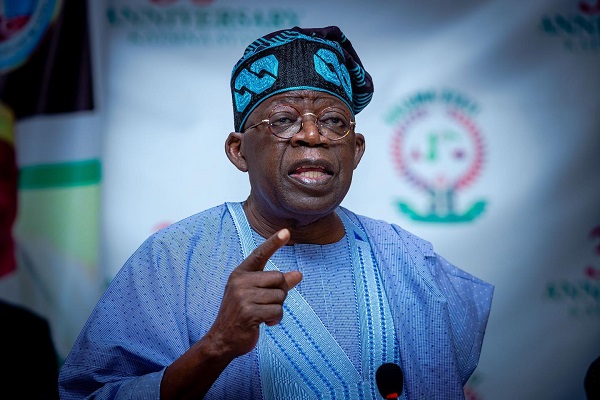The Presidency has assured that President Bola Ahmed Tinubu is committed to ensuring that all higher institutions benefit from a 24-hour power supply to enhance education.
Senior Special Assistant on Students’ Engagement to the President, Comrade Sunday Asefon, provided this assurance during a working visit to the Managing Director of the Rural Electrification Agency (REA), Abba Abubakar Aliyu, in Abuja.
The Federal Government has spent over N38,965,147 on power generation in several universities in Nigeria as part of the first phase of the Energizing Education Programme (EEP).
The recent increase in electricity tariffs has impacted public universities, with some paying between N150 million and N300 million monthly for electricity bills.
To address this, the Federal Government, through the Ministry of Power and the Rural Electrification Agency (REA), initiated the Energizing Education Programme (EEP) to provide reliable power via solar hybrid power plants. The programme initially targets 37 federal universities and 7 affiliated university teaching hospitals.
A document from the Rural Electrification Agency (REA) indicates that, due to budgetary constraints, the EEP is being implemented in phases. The first phase, costing over N38 billion, has been completed, and the solar hybrid power plants have been handed over to the beneficiary institutions.
According to REA, the second phase, which is currently in the pre-commissioning stage, will be officially launched in the fourth quarter of 2024, while the third phase, now under construction, is expected to be commissioned by the second quarter of 2025.
Beneficiary institutions in the EEP project include Nnamdi Azikiwe University, Anambra; Federal University of Agriculture, Makurdi; Alex Ekwueme Federal University, Ndufu-Alike; Usman Danfodiyo University, Sokoto; Bayero University, Kano; Abubakar Tafawa Balewa University; and Federal University of Petroleum Resources, Efunrun.
Others are Michael Okpara Federal University of Agriculture, Umudike; Federal University of Agriculture, Abeokuta; Federal University, Gashua; Nigerian Defence Academy, Kaduna; University of Abuja; University of Calabar and Teaching Hospital; and University of Maiduguri and Teaching Hospital.
In a statement to newsmen on Saturday in Abuja, Asefon said President Tinubu is aware that uninterrupted power supply is crucial for improving the quality of education and graduates in the country.
The former National President of the National Association of Nigerian Students said, “We are indeed honored by the readiness to collaborate with our office to ensure Nigerian students have regular electricity supply on campuses through policies initiated by President Tinubu to bolster electricity supply across Nigeria.
ALSO READ: Health commissioners seek increased funding in healthcare to achieve UHC
“Our students can only excel when they learn in a conducive environment, and electricity is one of the essential facilities needed to achieve this.
“Our discussion focused on electrifying our campuses with solar energy and providing transformers to host communities where our institutions are located.
“The MD shared details of the projects completed on some campuses across the six geopolitical zones, as well as ongoing major projects at other campuses.
“He attributed these efforts to President Bola Ahmed Tinubu’s commitment to renewing hope for Nigerian students by providing 24-hour uninterrupted power supply to our campuses.”
Asefon added that a series of interventions are underway through the agency to ensure stable electricity supply to institutions, noting that no president has previously given as much support and attention to institutional power supply as President Tinubu.
The Managing Director of the Rural Electrification Agency, Abba Abubakar Aliyu, promised to collaborate with heads of institutions and state governments to support host communities in need of assistance.
